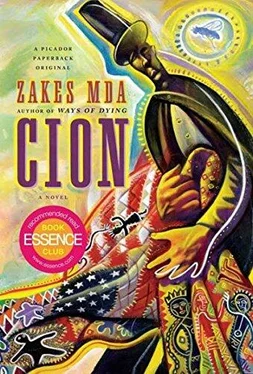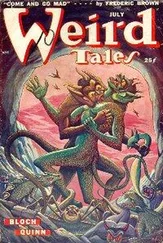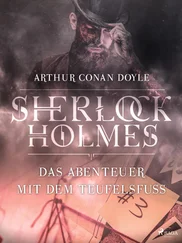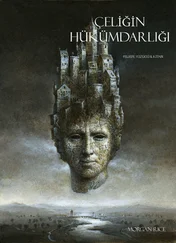Many things have changed since then. Even the name changed from Tabler Town to Kilvert. The new name came with coal mining.
“Back in the day there was coal mines here,” Ruth says. “There was a mine from Irene’s place to the cemetery next to the church. Not strip mining. Them miners went down.”
There used to be many houses in Kilvert in those days, right across the Federal Creek bridge. Kilvert was a thriving community during its coal mining days. The railroad to Cincinnati went through here near Cutler. You could catch a train to Cincy right here. There was even a post office in the village. Now the nearest post office is in Stewart, a world away if you have to walk. There was a saloon also; though it’s a good thing that there is no saloon anymore. Men used to drink themselves silly and everyone forgot about God. There was money to waste, that’s why. The coal mine bosses were locals: the Jenkins family, for instance. When the mines went out of coal it was the downfall of Kilvert. People left to get jobs elsewhere. They went as far as Chicago to work in the factories. Those who had coal in their blood left for the coal mines of West Virginia. There are now only about seventy families remaining in Kilvert. But those who left always come back to visit those who remained. Or to get old and die in the bosom of their ancestors. For example, the wealthy Jenkinses moved to Kenton, but the rest of the Jenkins family is still here.
Oh, yes, things have changed in Kilvert. But one thing has remained the same. They listen to weather reports and store food when there are predictions of rain. The floods have always been a constant through the generations.

Ruth accepts my professional mourning with grace, but if the Kilverters thought she would be impressed by my grand Egyptian connections they were soon proven wrong. It turns out she has no regard for the pharaohs because in the Bible they are villains. They oppressed the children of Israel and tried to stop Moses from leading them to freedom. Ruth identifies with the children of Israel. The pharaohs are therefore cast in the same mold as the slaveholders who kept her people in bondage in the South. But she is generous enough to tell me that she does not hold the actions of my ancestors against me. I try to put the record straight that nothing is pharaonic about me and my ancestry is totally South African but she dismisses that as an attempt at denying my roots because of the shame I must be feeling for the pharaohs’ repressive actions. She had seen from the day I arrived that my complexion was too “yella” for an African. One only had to take a walk down Court Street in Athens during the Africa Day Street Fair to see that Africans are much darker-skinned. Now, thanks to her Obed, she understands why my complexion is different: I am an Egyptian rather than an African. Once more she generously assures me that she does not hold it against me and therefore I must relax.
“Egyptians are Africans, Ruth,” I feebly correct her.
“Ain’t no Africans in the Bible,” she says, not looking at me but continuing with the sewing that she has been doing even before I woke up. “You should have gone with them men instead of sitting here getting to be so smarty-pants.”
The men — Mahlon and Obed — have gone turkey hunting deeper into the Wayne National Forest. They left in the GMC at dawn armed with shotguns and a crossbow. Ruth inspected them with pride, making sure that Mr. Quigley’s camo hunter orange jacket sat on him well and that Obed’s orange T-shirt with “Got Deer” printed on it was clean. She fussed over the fact that her son was not wearing any jacket. What was the point of wearing a hunter orange camo hat with ear covers if one was not wearing a jacket? But Obed was just as stubborn. It was going to be hot, he said. The only thing he needed was his orange shoulder bag for the packed lunch and water.
Last night Obed invited me to come along but I confessed my squeamishness. I enjoy meat as well as any man, but I’d rather someone does the killing for me, preferably in my absence. He thought I was being unmanly, but then again remembered that as a shaman I had my own habits that he was not qualified to question. I stood next to Ruth and watched them drive away. I was pleased to see that at least there were things that father and son do together. Ruth had a big smile on her face.
“I’d rather go to the Center and put in some quilting,” I tell Ruth. I know she does not like this one bit, but she must get used to the idea that I am my own man. She stops sewing and looks at me closely.
“Men are out in them woods doing man things, and you going quilting?”
“You heard what Obed said the other day. These are equal opportunity days. Professional mourning used to be a woman thing too, but now I am doing it.”
“Since when do you listen to Obed?”
“Since the funeral. There’s a brain in that head.”
Ruth smiles. Not openly. She dare not show me that she is proud of her son…that even she recognizes that he is not a total loss but is good for something.
“I never knew he knows the Bible so well. Maybe one of them days he’s gonna be a pastor. God does work miracles.”
I am tempted to observe that if Obed were to be a pastor she would surely insist on writing his sermons. But I am smart enough to keep that opinion to myself.
“He gets it from you, Ruth,” I say instead, hoping that she won’t detect a sarcastic tone in my voice. I told you I have become as much of a scoundrel as Obed. “Where else would he learn so much about the Bible but from his mama?”
Ruth takes the flattery in her stride. She is undoing a stitch that has gone awry when I walk out of the living room for my first quilting lesson.
I find the women at the Center sitting at one of the long tables discussing the state of the nation. This is what I have been telling the sciolist when he was beginning to haunt my dreams complaining that the story of my life in Kilvert was becoming too political instead of focusing on the psychological motivations of my friends and hosts. Politics dominates the conversation of the people here. Even as the five women are sitting at the table, with Barbara cutting the blocks on some brown material, Irene paging through a magazine with patterns of dresses and three other women just relaxing on what is obviously a social call for them, they are talking about Social Security and why George W. Bush wants to change it.
“He says people should gamble with it on the stock market,” says one of the women.
“The stock market has been there all along and never did nobody no good,” says Irene.
Barbara does not comment. I have noticed on previous visits that she never participates when others attack Mr. Bush. Like Ruth, she must be a lone Republican in a sea of rabid Democrats.
The women are excited that I actually made it for my first quilting class. At first they thought that I was joking when I said I wanted to learn how to quilt. Even after I had given money to Barbara to buy the necessary fabric, some of them still didn’t believe I would go on with it. One says she didn’t think Ruth would allow me. I tell her that it is not for Ruth to allow me or not, even though the communal wisdom is that I am her African. Yes, she is not enamored of the idea and she blames the Center for stealing her African. First they tried to steal her daughter and failed. But now they have succeeded with the African, who is in fact an Egyptian as has been revealed—“And we all know what the Bible says about them Egyptians.”
Barbara has already cut some of the blocks for me. When I express the wish that I would have liked to start there, to learn how to cut the blocks myself, she says she did not want me to have a difficult time on my first day. However, she teaches me how to cut a block on cardboard, and how to use that to draw lines with a pencil on the fabric. Then I cut the fabric, keeping the scissors sliding on the top of the table so as to cut straight. Mine is the four-inch block because, according to Barbara, four-inch blocks are prettier than three-inch ones and are easier to work with. Then she teaches me how to handle the machine and how to thread the bobbin. She issues one instruction after another as I struggle to figure out what she wants me to do exactly: “Put the color face to face when you start sewing. Raise your presser foot — the lever at the back. Pin the seams together. Always put your presser foot down before you sew.”
Читать дальше













